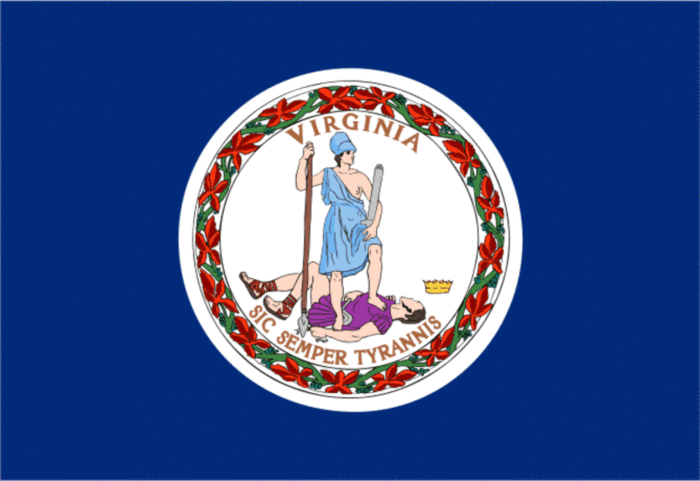[Dear reader, over the last few years I have faithfully printed this article and sent it off into the dark crevasses of the Virginia General Assembly. To report that the response has been underwhelming, would be an exaggeration.
I’m always amazed that a member or a candidate, or a coalition of either, hasn’t seized this issue for both political and practical reasons to argue for genuine reform of a government genuinely in need of reform. In November, 2017 Virginians will elect a new governor and a new House of Delegates. This would be an interesting question to pose to every candidate, and would tell voters who wanted to reform government, and who simply wanted to be the government. MG]
________________
King Solomon in Ecclesiastes reminded us 3,000 years ago that “There is a time for everything and a season for every activity under the heavens.”
In his list, the King added, “a time to keep and a time to cast away.”
Which brings me to the Virginia General Assembly, meeting next month in Richmond to chart the future of the Commonwealth.
Virginia, like most states, can never find enough money in the budget because, by and large, its politicians, like all politicians, can’t resist spending other people’s money. The state’s budget has grown like ragweed, essentially doubling in the last fifteen years, substantially faster than both inflation and population growth. Of course, it still hasn’t been enough.
Never is.
Only a few years ago in 2013, already in the middle of a spending binge, Gov. Bob McDonnell and a lot of self-proclaimed “conservatives” – all of whom promised not to raise taxes – pushed through a hodgepodge $6 billion tax increase that was for “transportation” – sort of. Kind of. Maybe.
It is simply the human condition; unless you are spending your own money, the value of someone else’s money diminishes in proportion to their ability to stop you, and the suggested moral superiority assigned to the purported purposes for its use.
Everyone has their own favorite idea for how to “fix” the budget – any budget; and there are as many economic arguments (all documented with statistics hanging like stalactites in Luray Caverns) as there are economists.
Here’s mine: Eliminate Virginia’s personal and corporate income tax. Yep, don’t lower them – abolish them. Zero. Nada.
This is born out of the firm belief that taxes and budgets are a people problem, not a political problem. The only solution for the taxpayer is to restrict, constrict, hobble, bind, and deny politicians the means to spend money. That takes a lot of discipline on the part of the frazzled citizens trying to attend to their own affairs.
My idea would be to follow the example of states like Texas and Florida (seven states currently have no income tax). Drop – eliminate the income tax and business income tax, and establish a fixed state sales tax percentage, and then allow the various counties the flexibility to add any amount from zero to 1%.
For businesses, go to a flat tax on assets.
Others can argue about the budget numbers and the merits of any given program, but at the end of the day if the General Assembly doesn’t have enough revenue and had to cut a budget, instead of spend, well that would be the whole point!
Removing the income tax and replacing it with a straight tax on consumption, to my mind, is an issue of both morality and economic growth for Virginia.
The moral issue is paramount. A laborer is entitled to his wages.
The best use of personal money for the vast majority of us is to support our families, and provide for their maintenance. It is the foundational responsibility of the individual (no, it ain’t the village) to care for, educate and prosper our families. This is a Biblical concept present throughout Scripture, and it is a commonsense issue that is obvious and easily observed in the human family.
As a practical matter, limiting the state government to a percent of its economy is fine thing and should be ferociously advanced. The politicians should have a floor and a ceiling to spend, and nothing more.
But eliminating the state income tax has positive economic possibilities for Virginia as well, since it is surrounded by states that have been hobbled by radical left-wingers.
The sucking sound you would hear if Virginia eliminated personal and corporate taxes (to quote Mr. Perot) would be the sound of businesses from nearby Pennsylvania, Delaware, Maryland and even North Carolina, that would be trying to relocate or start businesses inside the borders of a state that was genuinely interested in the well being of its citizens, demonstrated by creating an environment for expanding jobs and personal opportunity.
How exceptional would that be?
The question is, of course, can this ever happen in Virginia? The answer is a question as well; are there enough citizens who are sick and tired of bloated and dysfunctional government (especially education spending), that can only grow and expand; never slimming, never pruning, never efficient, and always looking for ways to hogtie its citizens? And are there a handful of stand up members of the General Assembly willing to join us?

